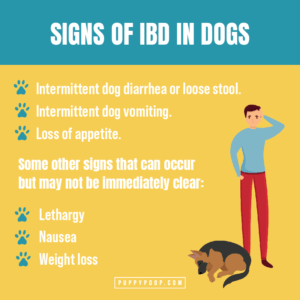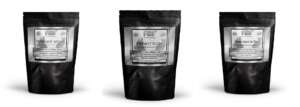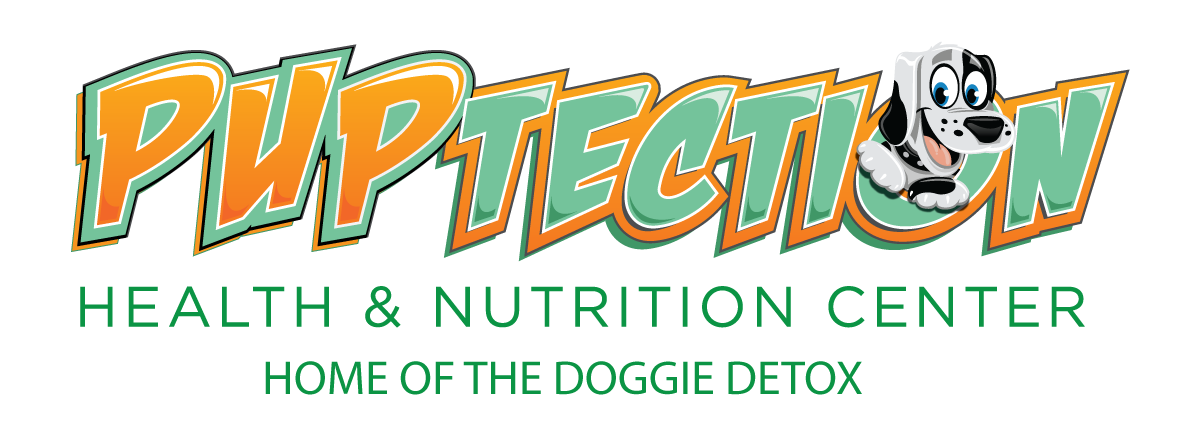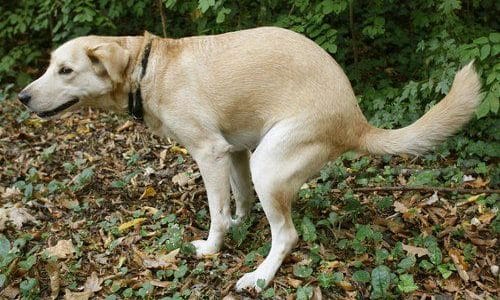What is Inflammatory Bowel Disease in Dogs?
 Inflammatory Bowel Disease in Dogs (IBD) is a serious immune-related condition that causes chronic inflammation in the intestines. It often leads to symptoms like vomiting, diarrhea, and weight loss. Depending on the dog, these symptoms can range from mild to severe and may come and go unexpectedly. Over time, IBD can lead to nutritional deficiencies in dogs, further impacting their health.
Inflammatory Bowel Disease in Dogs (IBD) is a serious immune-related condition that causes chronic inflammation in the intestines. It often leads to symptoms like vomiting, diarrhea, and weight loss. Depending on the dog, these symptoms can range from mild to severe and may come and go unexpectedly. Over time, IBD can lead to nutritional deficiencies in dogs, further impacting their health.
1. Recognizing the Symptoms of IBD in Dogs
The most common sign of Inflammatory Bowel Disease in Dogs is persistent diarrhea. If the condition affects the upper part of the small intestine, vomiting may occur without any diarrhea. Dogs with large bowel involvement may experience soft stools with blood or mucus. These signs can appear suddenly or gradually worsen over time.
2. The Role of Diet in Managing Inflammatory Bowel Disease in Dogs
Diet plays a crucial role in managing Inflammatory Bowel Disease in Dogs. Many commercial dog foods can trigger flare-ups, so switching to a raw diet can help. A raw, homemade diet formulated with single protein sources and low-allergenic carbohydrates can significantly reduce symptoms.
3. Adding Fiber to Your Dog’s Diet
For dogs with colonic IBD, adding fiber supplements can improve stool consistency and promote healthy digestion. Fiber helps feed the beneficial bacteria in the gut and supports overall intestinal health.
4. Understanding Nutritional Deficiencies in Dogs with IBD
Left untreated, IBD can cause nutrient malabsorption, leading to vitamin and mineral deficiencies in dogs. This makes it essential to provide a nutrient-dense diet that addresses the specific needs of dogs with IBD.
5. The Benefits of a High-Protein, Low-Carb Diet
A high-protein, low-carbohydrate diet is often recommended for dogs with IBD. This type of diet is easier to digest and reduces the strain on the digestive system, allowing dogs to absorb more nutrients.
6. Monitoring Your Dog’s Progress
Regular vet check-ups and monitoring your dog’s symptoms are vital to managing IBD. Keep a close eye on changes in stool consistency, vomiting, and overall behavior.
7. Natural Supplements for IBD in Dogs
Natural supplements like omega-3 fatty acids and probiotics can help support the immune system and reduce inflammation in dogs with IBD. Always consult your vet before adding any new supplements to your dog’s diet.
Conclusion
Inflammatory Bowel Disease in Dogs can be a challenging and complex condition, but with the right management strategies, it is possible to greatly improve your dog’s health and well-being. While there is no known cure for IBD, addressing it through dietary changes, natural supplements, and careful monitoring can make a world of difference.
By transitioning your dog to a raw, nutrient-dense diet with single protein sources and low-allergenic carbohydrates, you can help minimize inflammation and reduce the frequency of flare-ups. This is especially important as many commercial dog foods contain ingredients that can aggravate the condition. Adding fiber supplements and probiotics will not only promote gut health but also help to stabilize stool consistency, reduce harmful bacteria, and nourish the digestive tract.
Furthermore, keeping a close watch for nutritional deficiencies in dogs is essential. IBD can lead to malnutrition due to poor absorption of nutrients, which makes it critical to ensure your dog is receiving the proper vitamins and minerals. Regular vet visits and blood work can help track any deficiencies, and supplements like omega-3 fatty acids can reduce inflammation and promote overall immune health.
Incorporating these powerful strategies can help you manage your dog’s IBD and enhance their quality of life. With patience, persistence, and the right approach, your dog can lead a healthier, more comfortable life despite the challenges of IBD.






